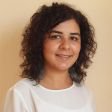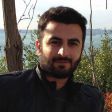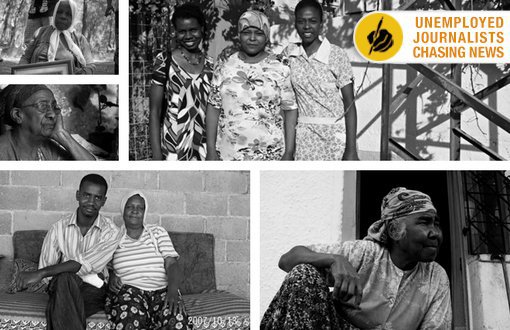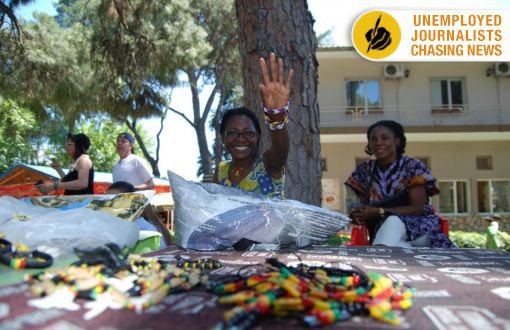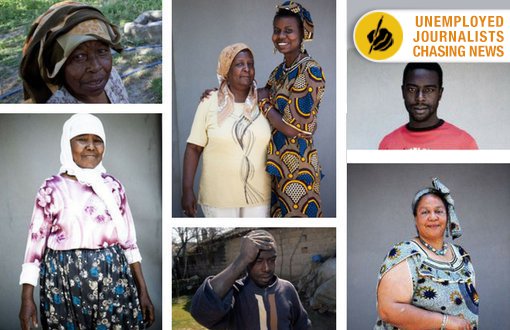Click to read the article in Turkish / Kurdish
While there is an ongoing false perception that “there is no racial discrimination in Turkey,” Afro-Turks, whose ancestors were brought as slaves from Africa, are trying to avoid discrimination. They either refrain from going out of their living space or prefer to marry white people in order to “whiten” the next generation.
Everyday discrimination in Turkey has different types. It can vary from calling Afro-Turk babies “how cute” to naming them “chocolate” or “Arab,”, from confusing them with tourists to plain mockery.
They prefer to marry white people
In order not to transferthe difficulties they faced to the next generation, Afro-Turks marry white people and whiten the next generation. In these marriages, the main motivation is usually to become more white. Generally, personality traits of the partner are not questioned.
Assistant Professor Lülüfer Körükmez particularly meets with women during her field studies. She remarks that there are examples where after the marriage, the women are scrutinized and humiliated by their husbands, husband’s families and social circles due to their skin color.
“For reasons like this, the number of divorces has been increasing. Especially in villages, we see many divorced mothers living with their children. After their marriages, the divorced women usually go back to their families’ houses, taking their children with them. In these houses, the grandmothers are taking care of the children, and the mothers are working any jobs they could find. This is mostly seasonal employment in industrial farming. This means cabbage or mandarin picking depending on the season. Growing in number, these families try to act with solidarity with each other as far as possible. Such families are growing in number and they try to act in solidarity with one another as much as possible.”
Black women are seen as more “touchable”
Journalist Alev Karakartal draws attention to another aspect of the issue and says that black women are seen as more “touchable” than white women.
“First, people look at you. They ask where you are from or if you are a multiracial. If you get over the “how cute” part safely, they immediately touch you. Without your permission, that hand touches your head and then proceeds to your nose. This is harassment, there is no other name to call it. You are under continued harassment and cannot explain to people that it is harassment.”
Not "Arab," "chocolate," or "blacky,"; Black
Being identified as Arabic is more acceptable than as being identified as African to some segments of the Afro-Turk community. Beyhan Türkkolu specifies that Afro-Turks think African identity as something to be belittled: “In the media, Africa usually comes to our attention through poverty and disease. Positive things are seldom shown. Saying that you are not African but Arabic or dark-skinned might be more acceptable for some people. Of course we were born here. But we did not bring our skin color from Asia; we are from Africa. Through the association, people have become more aware of this.”
Afro-Turks are uncomfortable with people calling them “chocolate skin,”“blacky,” or ”Arab.” Karakartal says, “We call ourselves black. Hence we want people who talk about us to use the same word. This is a political choice and a definition we use in opposition to white? oppose to white.”
“We do not make propaganda, we want to learn our past”
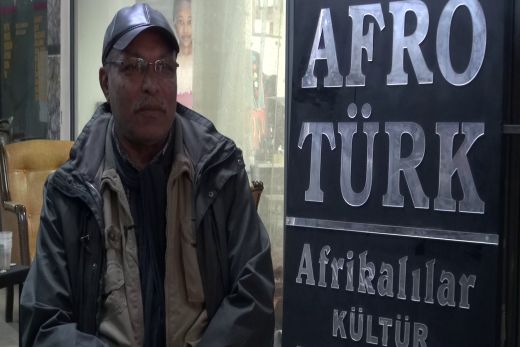
Afro-Turks want to learn where they came from and want to know the traditions of their ancestors. While they carry out all these studies, they are also obliged to deal with stereotypes in Turkey. Ahmet Doğu, residing in Izmir, explains the situation:
“There is the popular saying that we live here but make propaganda for Africa. We do not makepropaganda for that place. Like all other people, we want to know where our ancestors came from. Like all people, you would wonder where your grandmother and grandfather came from. Yours is from Afyon, ours is from Africa. This curiosity come from human nature.”
Afro-Turks frequently deal with this narrative: “Good that you have come here. If not, how would conditions be for you?” Ahmet Doğu says that these sort of questions and reasoning are not right and are discomforting. When he is asked this question, he answers that they would live in those conditions then.
Çetinbilek: “I clearly feel discrimination in Europe”
.jpg)
Lawyer Orhan Çetinbilek says that he had not been subject to discrimination due to his skin color. Çetinbilek frequently travels to Europe due to his occupation as a lawyer and writer. He says that in Europe, discrimination is clearly felt in everyday life: “To speak of discrimination here without speaking of it in Europe and USA is only a part of the picture. These need to be told and compared.”
Slavery should be in textbooks
The African Culture, Cooperation and Solidarity Association works as a memory center and gathers human stories. It strengthens this field, which was not sufficiently studied in previous years and works to go back as far as it can in the historical context. This field was not sufficiently researched in previous years, and the association works to go as far back as it can in the historical context Information obtained by academics studying Ottoman Turkish texts is added to the studies conducted by the association.
The Afro-Turk community is not recognized enough in Turkey. There is no information on this community in the curriculum. Karakartal says “When you define yourself as Afro-Turk, they ask what it is. When you start with slavery, they ask if there was slavery here. We are so tired of this… Slavery is a crime against humanity, we need to agree on this. It should be in the history textbooks, because this country has a history of slavery. We are not the only ones who need this. The people of this country need this. They need to face it.”
“Their approach is: ‘I found myself an interesting subject’”
When we were preparing this report, our first idea was to go to the villages in the Aegean region where Afro-Turks live. We thought that we might be able to access the people in these villages through the African Culture, Cooperation and Solidarity Association. Yet the association indicated that this was not possible and that Afro-Turks grew weary Constantly being handed microphones and being asked about their past
The reports and research done up until now have generally focused on the roots, the past of Afro-Turks and where they came from. They have been treated as an exotic community. This has caused them to withdraw.
Körükmez, whom we asked about this weariness, says:
“An important faction of civil society as well as academicians, journalists and documentary producers are at times interested in this subject. My observation about this interest is this: They think, “We found ourselves an interesting subject. Let’s go do this and then retreat from this field.” Hence, the people in the villages are tired. There is this approach to not contribute to anything. “We have reported it, documented it, what else can we do?” They have this tradition to contribute to nothing.”
Körükmez remarks that when dealing with Afro-Turks or other discriminated communities, studies that support and empower them should be more extensive. She says that long-term studies that aim to increase social acceptance should be carried out. She emphasizes that the practices should not only address the discriminated community but the rest of the society as well.” (AT-FD/NU/HK)
Tomorrow: Bingöl - Persons with Disabilities
***
UNEMPLOYED JOURNALISTS CHASING NEWS
1- Even Though They Speak Through Their New “Occupations,” They Are Journalists
2- Journalism is Banned under theState of Emergency
3- Germany: New Generation Diaspora/Kopuntu
4- Germany: Immigration of the Suffocated
5- The Organization that Made "The Arab Girl Looks from the Window"
6- How They Work/Cannot Work, Breaking Down the Stereotypes
7- They Marry White People to Avoid Discrimination
8- Private Rehabilitation Centers and Problems: The Example of Bingöl
9- Two Directors Discuss the “Educational Support for People with Disabilities” Practices
10- 'Solution is Inclusion System in Education for People with Disabilities'
11- Students and Parents from Bingöl Tell of Their Experiences
* The "Unemployed Journalists Chasing News" project is being realized with the financial support of Matra-Human Rights Program of Consulate General of the Kingdom of the Netherlands.




